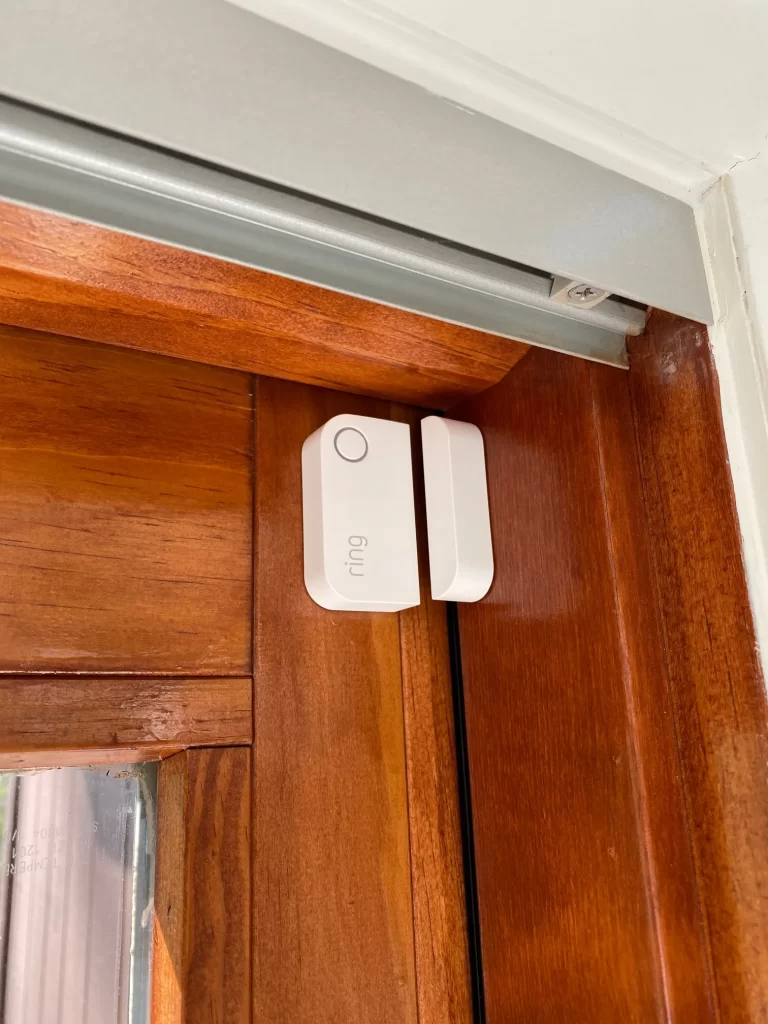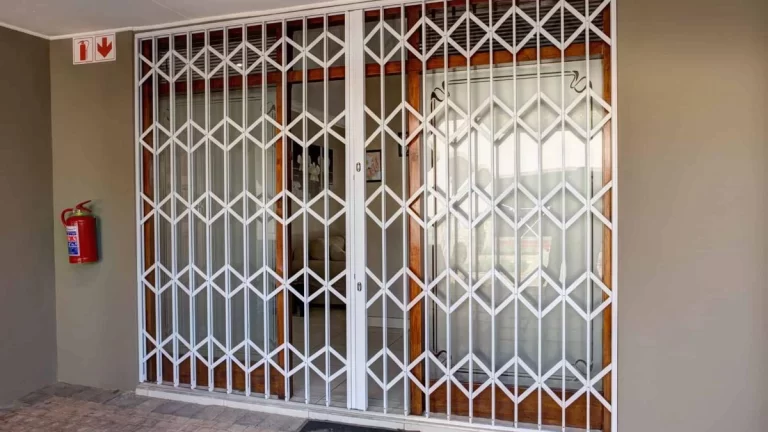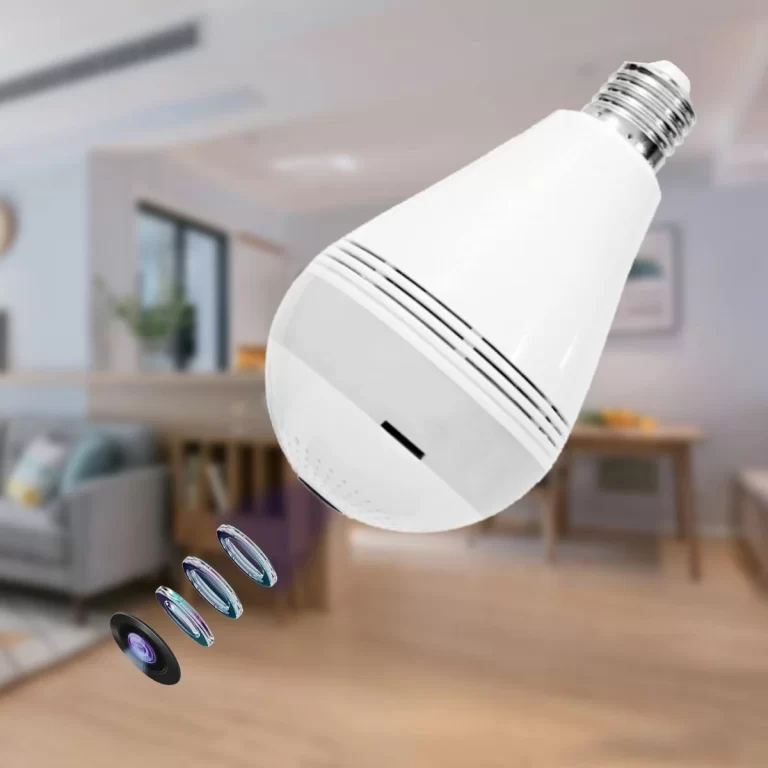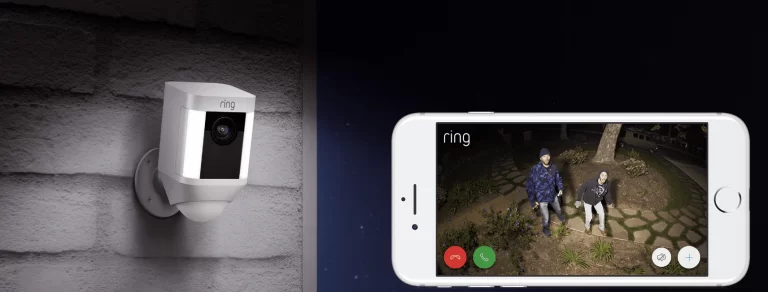What Type of Patio Door is Most Secure? French Doors
What type of patio door is most secure? Homeowners are often concerned about the security of their patio doors, as they serve as potential entry points for intruders.
This article aims to address homeowners’ concerns by exploring the security aspects of patio doors, comparing the security features of sliding and French doors, and providing practical tips on how to reinforce and barricade patio doors to enhance home security.
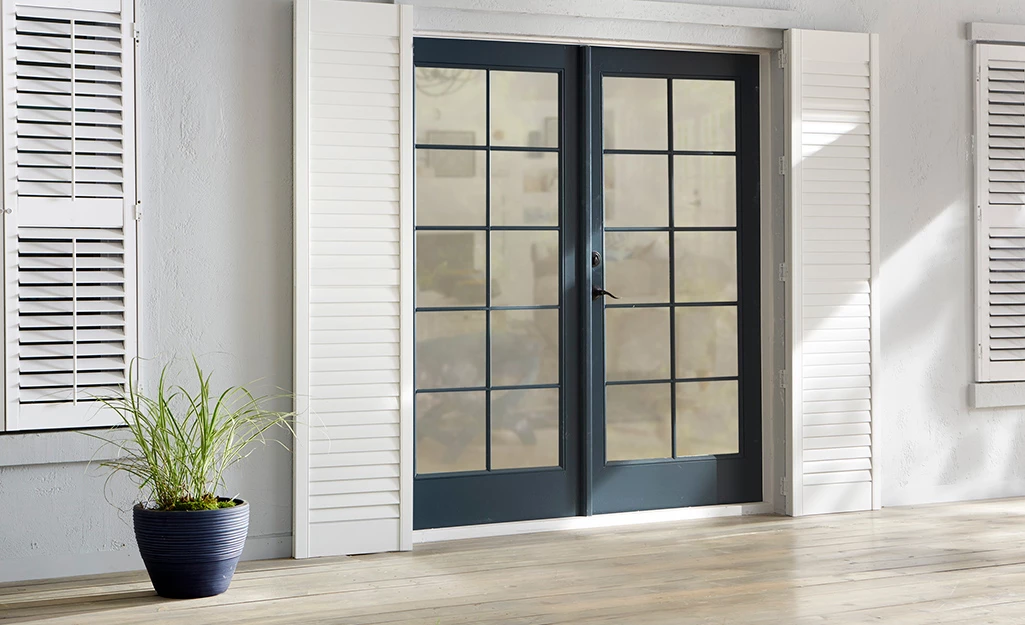
How Secure are Patio Doors?
Patio doors play a significant role in connecting indoor and outdoor spaces while providing natural light and beautiful views. However, their large glass panels and accessible entry points can make them vulnerable to break-ins.
The level of security offered by patio doors varies depending on factors such as the type of door, the quality of construction, and the locking mechanisms employed.
Evaluating the security features of different patio door types is crucial to ensuring the safety of your home.
What Type of Patio Door is Most Secure?
What type of patio door is most secure? When it comes to selecting a secure patio door, two popular options are sliding doors and French doors. Let’s explore the security features of each:
1. Sliding Doors:
Sliding patio doors are a common choice due to their sleek design and space-saving functionality. Key security features of sliding doors include:
- Multi-Point Locking Systems: High-quality sliding doors often come equipped with multi-point locking systems that secure the door at multiple points along the track, making it difficult for intruders to force the door open.
- Impact-Resistant Glass: Opting for sliding doors with impact-resistant glass can add an extra layer of security. This type of glass is designed to withstand heavy impacts and is more difficult to break, deterring potential burglars.
2. French Doors:
French patio doors are known for their elegance and timeless appeal. While they provide a classic aesthetic, their security features are equally important. Some security aspects of French doors include:
- Solid Construction: French doors made of sturdy materials such as solid wood or reinforced steel offer increased resistance against forced entry.
- Deadbolt Locks: Installing high-quality deadbolt locks on French doors significantly enhances their security. Look for deadbolts with hardened steel bolts and anti-saw pins for added strength.
Which is More Secure, Sliding or French Doors?
BWhat type of patio door is most secure? oth sliding and French doors can be secure options for your patio, but they have different strengths. Here’s a comparison:
- Sliding doors are often equipped with multi-point locking systems, making them more difficult to force open. Their large glass panels can be reinforced with impact-resistant glass for added security.
- French doors, with their solid construction and deadbolt locks, provide a robust defense against break-ins. The presence of multiple locking points along the door frame also adds to their security.
Ultimately, the choice between sliding and French doors depends on your personal preferences, architectural considerations, and the level of security you desire.
How Do Burglars Break in Patio Doors?
Understanding how burglars typically target patio doors can help you better protect your home. Some common methods used by burglars to break into patio doors include:
1. Forced Entry: Intruders may attempt to force open a patio door by prying it with tools such as crowbars or screwdrivers. Weak or faulty locks can make this method easier for them.
2. Lifting the Door off the Track: Sliding doors are susceptible to being lifted off their tracks if they are not properly secured. This allows burglars to bypass the locking mechanism and gain access to your home.
How Do You Prevent Patio Doors from Being Lifted?
To prevent patio doors from being lifted off their tracks, consider implementing these preventive measures:
1. Install Anti-Lift Devices: These devices can be attached to the top or bottom track of the sliding door, preventing it from being lifted. They are designed to secure the door in place, even if the lock is compromised.
2. Insert a Rod or Dowel: Placing a sturdy rod or dowel in the track of a sliding door can obstruct its movement, making it more difficult for burglars to lift the door.
Why Do Patio Doors Drop?
Over time, patio doors may experience issues such as dropping or misalignment, affecting their security and functionality. Several factors can contribute to this problem, including:
1. Wear and Tear: Continuous use and exposure to varying weather conditions can cause patio doors to sag or drop.
2. Loose or Worn-out Rollers: The rollers that enable smooth sliding motion can become loose or worn out, leading to misalignment and door dropping.
How Do You Barricade a Patio Door?
Barricading your patio door can serve as an additional security measure. Here are some methods to consider:
1. Security Bars: Installing sturdy security bars on the interior or exterior of your patio door can prevent unauthorized entry. These bars act as physical barriers, making it challenging for burglars to force open the door.
2. Reinforcing the Door Frame: Strengthening the door frame with metal plates or security strike plates can reinforce its resistance against forced entry.
How Do You Reinforce a Patio Door?
To reinforce a patio door and enhance its security, you can take the following steps:
1. Upgrade Locking Mechanisms: Consider replacing standard locks with high-quality deadbolt locks that have hardened steel bolts and anti-saw pins. This adds an extra layer of protection against forced entry.
2. Install Security Film: Applying security film to the glass panels of your patio door can make it more resistant to breakage. The film holds the glass together even if it shatters, making it difficult for intruders to gain access.
3. Use Security Pins: Security pins can be inserted through the door frame into the sliding track, preventing the door from being forced open even if the lock is compromised.
4. Reinforce the Door Frame: Strengthening the door frame with metal plates or security strike plates can fortify its resistance against kicks or blows. These plates distribute the force of impact and make it harder for intruders to break through.
How Do You Secure a Patio Door From the Inside?
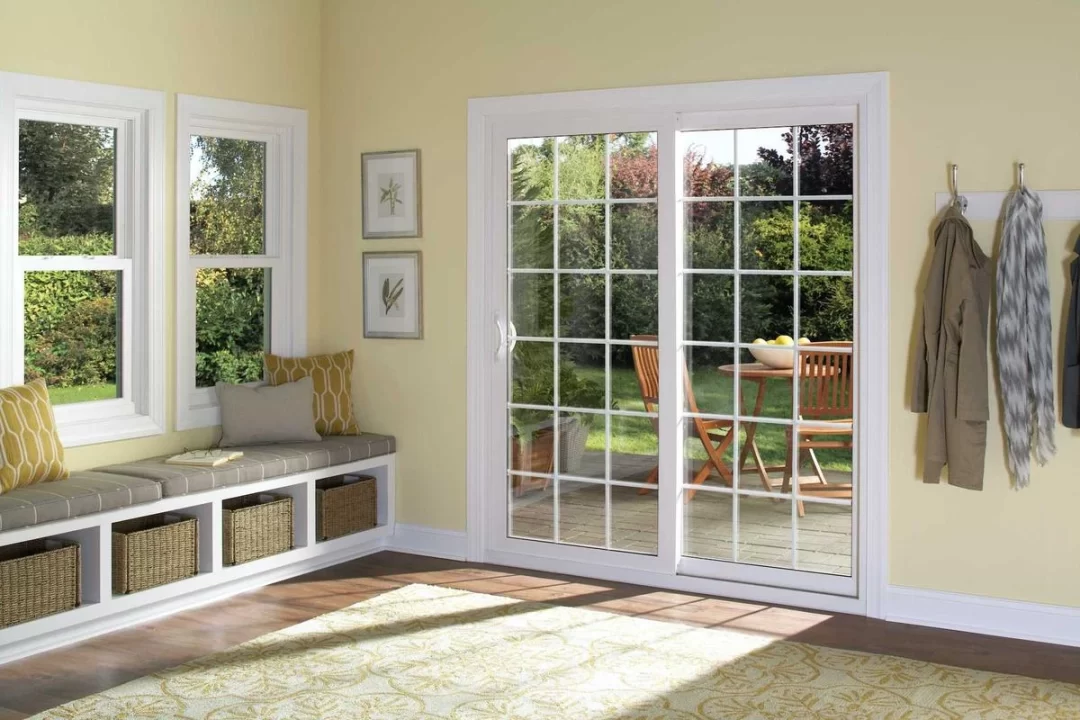
Securing the patio door from the inside further enhances its security. Here are a few methods to consider:
1. Install Window Coverings: Utilize curtains, blinds, or shades to obstruct the view from the outside. This prevents potential burglars from assessing the contents of your home and reduces the likelihood of break-ins.
2. Use Security Bars or Grilles: Installing interior security bars or grilles adds a physical barrier that deters intruders. Ensure that these bars or grilles have a quick-release mechanism for emergency exits.
3. Utilize Door Sensors: Door sensors connected to a home security system can alert you if the patio door is opened or tampered with. This provides an additional layer of security and peace of mind.
How are Patio Doors Fastened?
- Patio doors are typically fastened using a combination of locking mechanisms. Some commonly used methods include:
- Mortise Locks: Mortise locks are recessed into the door and offer robust security. They have a deadbolt and latch mechanism that engages with the door frame, providing a sturdy locking point.
- Cylinder Locks: Cylinder locks, commonly known as pin tumbler locks, use a key to operate a series of pins that secure the door. They are widely used in both sliding and French patio door.
- Multi-Point Locking Systems: Sliding doors often feature multi-point locking systems that secure the door at multiple points along the track. This distributes the force of impact and makes it harder for intruders to force the door open.
Conclusion
Choosing a secure patio door is essential for safeguarding your home and providing peace of mind.
Both sliding and French doors can be secure options, with sliding doors offering multi-point locking systems and impact-resistant glass, and French doors providing solid construction and deadbolt locks.
Taking additional measures such as reinforcing the door frame, using security film, and implementing preventive techniques like anti-lift devices or rods can further enhance the security of your patio door.
Remember to assess your specific needs, consult with professionals, and invest in high-quality security solutions to protect your home effectively.
READ ALSO!!!

